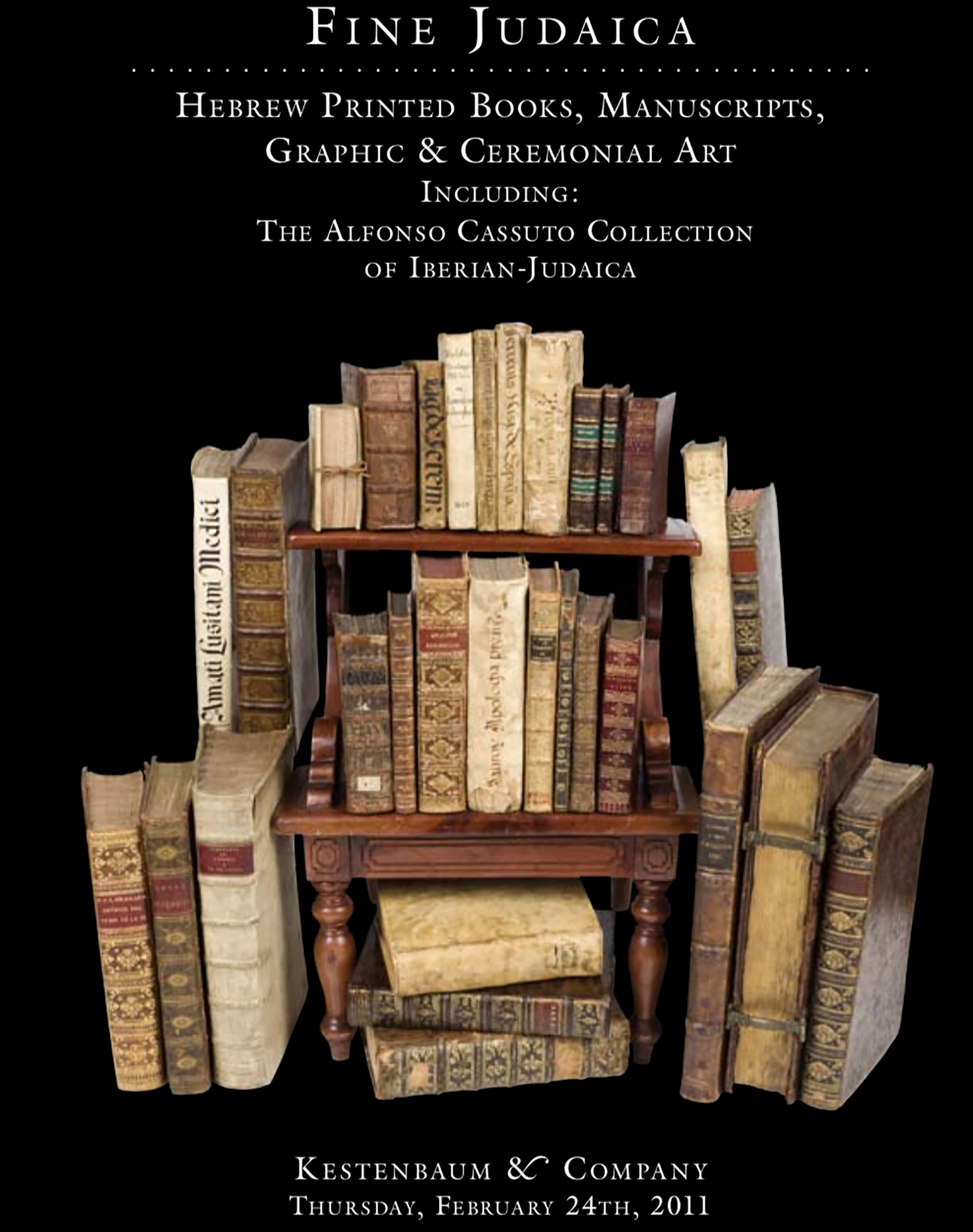CASTRO, RODRIGO DE. De Universa Muliebrium Morborum Medicina [gynecology].

AUCTION 50 |
Thursday, February 24th,
2011 at 1:00
Fine Judaica: Hebrew Printed Books, Manuscripts, Graphic & Ceremonial Art Including: The Alfonso Cassuto Collection of Iberian Art
Lot 319
(MEDICINE).
CASTRO, RODRIGO DE. De Universa Muliebrium Morborum Medicina [gynecology].
Hamburg: Froben 1603-1604
Est: $1,000 - $1,500
PRICE REALIZED $1,100
Divided into two parts: Theorica and Praxis, this is the first edition of the foremost work of gynecology in the Renaissance period.
Rodrigo de Castro (1546-1627) was born in Lisbon into a family of physicians. His maternal uncle, Manuel Vaez was physician to Kings João III, Sebastian, Cardinal Henrique and Philip II. Rodrigo studied at the University of Salamanca receiving a degree as Doctor of Philosophy and Medicine. Though he found favor with the King, Rodrigo fled Lisbon for Antwerp on religious grounds. Eventually, some time before 1596, he arrived in Hamburg as one of the first Jewish settlers. In that year of 1596, Hamburg was stricken with an epidemic, De Castro's laudable efforts in containing the plague were duly noted and long remembered by the authorities. As in the case of many other Portuguese Marranos, the transition from Catholic to Jew was gradual. This explains the surprising fact that Rodrigo's first wife was buried in the Catholic Cemetery of Hamburg (communication from Alfonso Cassuto to H. Friedenwald, p. 451, n. 19). By 1612 de Castro had remarried, and in the list of the Jewish community of 1612, one finds Dr. Rodrigo de Castro, his second wife, two sons, and younger children. At various times, de Castro was called upon to treat the King of Denmark, the Archbishop of Bremen, the Duke of Holstein, the Duke of Mecklenburg and other notables.
See A. Cassuto, Zeitschrift für die Geschichte der Juden in Deutschland, Vol. III (1931) nos. 1, 58, 64 and 68; H. Friedenwald, The Jews and Medicine, Vol. II (1967) pp. 449-52.
